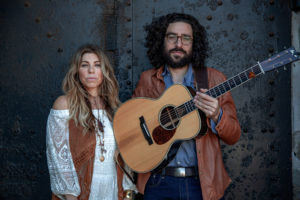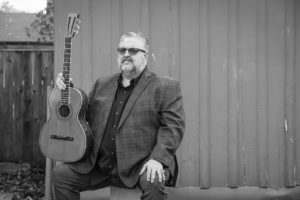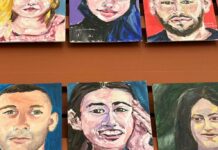
Jews have a long and storied history in country music and, for a few weeks this winter, the Weitzman National Museum of American Jewish History will showcase it.
On four consecutive Tuesdays, starting Feb. 15 and ending March 8, the Philadelphia museum is hosting virtual programs on the subject. All four sessions begin at 8 p.m.
They will spotlight a variety of topics, including the Jewish tailors who helped design the genre’s famous western attire, charismatic Jewish musician from Oklahoma Mark Rubin, Jewish musician Joe Buchanan who discovered his religion later in life, and the Jewish band Nefesh Mountain that recently performed at the Grand Ole Opry House in Nashville, perhaps the most iconic venue in country music.
Daniel Samuels, the director of public programs at the Weitzman, described the series as “mission-centric” for the museum. It’s in line with the institution’s goal of instilling a greater appreciation for American Jews and their contributions.
It’s also “out of left field,” Samuels said.
“It might change our thinking about ourselves,” he added.
The Weitzman is not yet back open in person due to COVID.
But it is back on solid financial footing thanks to an eight-figure gift from its new namesake, Philadelphia shoe designer Stuart Weitzman. The formerly named National Museum of American Jewish History filed for chapter 11 bankruptcy in March 2020.
“The Jews in Country Music” series is part of the institution’s expanding slate of online programming.
Samuels started in his position in February 2020. While he never expected to focus on digital events, that is exactly what he has done during COVID. And it has opened his eyes to new possibilities. People have been checking into museum Zooms from as far away as Asia.
“Now my job is continuing to engage people online so we can keep reaching people across Europe, Asia and the United States, and offering in-person programs here and other places in Philadelphia,” Samuels said of the museum’s hopefully not-too-distant future.
In the immediate future, though, the country music series may help the Weiztman continue to expand its reach.
Country music is one of America’s most popular cultural and artistic industries. The history of Jews in country music can therefore be appealing to country fans, to Jews and to people who fit into both categories, according to Samuels.
“What do you want fans of country (music) to know about Jewish people?” Samuels asked. “What do you want Jewish people to know about country music?”
Each event will feature conversations about the topic and musical performances.
Appearances will be made by a curator from the Country Music Hall of Fame in Nashville, Rubin and Nefesh Mountain, among others. The latter two are going to perform as well.
Attendees can ask questions after the second, third and fourth Zooms, according to Samuels. If you come for all four events, you will log off on March 8 with a foundation of knowledge about the history of Jews in country music.
“Let’s call it 101,” Samuels said. “The intro class.”
The intro class started coming together a year ago when the Country Music Hall held a digital event called “Suiting the Sound,” about the costume tailors. Samuels watched the program and learned that several of the tailors were Jewish immigrants.
That famous country cowboy look with the shiny rhinestones and the western shirts? Jews helped create it.
“When you think of country music, you don’t think [of] Jewish immigrants,” Samuels said. “These guys dressed Elvis Presley, Johnny Cash, Buck Owens.”
After that, the director connected with the Country Music Hall about collaborating on a series for the local museum. Together, they made “Suiting the Sound” the first event in the Weitzman program. Then they built out the rest of the schedule.
But it was Samuels, a former touring musician, who took the lead. Once the Jewish Bucks County native learned that his people had a history in country music, he couldn’t stop researching it.

He learned about Rubin, Buchanan and Nefesh Mountain. But he also learned about others who won’t be featured in this exhibit, like Kinky Friedman, who formed a band called The Texas Jewboys and toured with Bob Dylan in the 1970s.
The topic of Jews in country music may make future appearances at the Weitzman, too, Samuels said.
The director even expressed interest in following the Country Music Hall’s lead and opening a special Dylan exhibit. Dylan was born to Jewish parents and recorded several albums in Nashville, including a country album, in the 1960s, helping to grow the city’s music scene.
“The more I’ve talked to my colleagues about this series, the more I’ve realized there’s so much more to dig into,” Samuels said.
[email protected]; 215-832-0740







Music Row’s history of Jew-hatred is one of the reasons your readers might not be aware of Stacy’s Music Row Report nor “Kosher Country: Success and Survival on Nashville’s Music Row.”
[Link deleted]
[Link deleted]